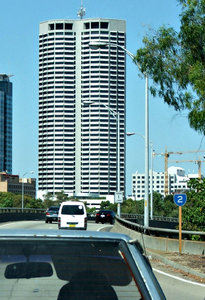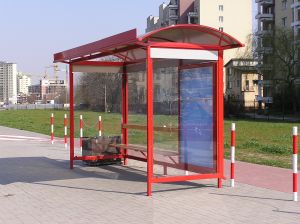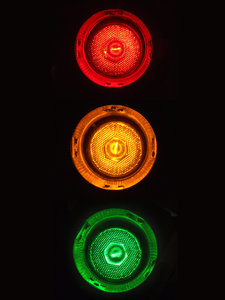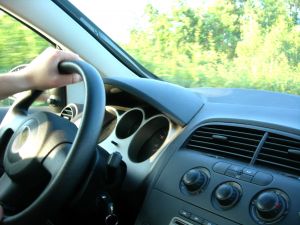A drunk driver, with a blood alcohol level of .22, was arrested by Boston Police after being detained by witnesses. He reportedly hit a street sign on Keystone Street and then tried to drive away, according to the West Roxybury Patch. Alcohol-impaired drivers not only pose threats to street signs, but to other motorists as well. For this reason, these motorists have been placed on the National Transportation Safety Board most wanted drivers list.
The most wanted drivers list launches a new program created to help keep residents safe from a car accident in Boston and elsewhere. The NTSB aims to increase the public’s awareness of, and support for, action to adopt a number of safety steps that can potentially save lives.

Our Massachusetts personal injury attorneys know everyone is vulnerable to accidents — but drunk drivers, teen drivers and motorcycle riders certainly top that list. Regardless of how safe your driving habits may be, you are always at risk for experiencing a car accident with an unsafe driver.
Teen drivers are the most dangerous drivers on our roadways. Car crashes are the number one cause of death for teens in our country. It is estimated that traffic accidents take the lives of nearly 10 teens every day. As a matter of fact, this death rate is higher than deaths related to cancer, gun violence, or drugs among the same age group. Teen drivers make up the age group that is most likely to die in a motor-vehicle accident on our roadways. According to the National Highway Transportation Safety Administration (NHTSA), nearly 2,500 drivers ages 15 to 20-years-old were killed in traffic accidents in 2009. Another 196,000 motorists were injured in these accidents Massachusetts experienced nearly 50 teen driver deaths during that year. A number of these deaths could have been prevented had these drivers been properly and thoroughly educated about roadways safety.
The NTSB recommends that all states conduct a graduated driver licensing (GDL) system to allow young drivers to learn how to drive through gradual and effective exposure:
-States should start off by allowing young drivers to drive in low-risk situations. As they gain more and more driving experience, driving restrictions should be lifted. This stage is known as the beginner licensing (learner’s permit) stage. During this time a teen driver must be accompanied by a licensed driver over the age of 21.
-These young drivers should be limited on the number of hours they can drive during the evening hours. This is common in many state’s intermediate stage. A driver can now drive without the supervision of an adult but still has a number of restrictions.
-During the intermediate stage, a driver should have a strict limit on how many teen passengers they can have in the car with them. Passengers serve as a major driver distraction and greatly increase the risk of a traffic accident.
-All drivers should be prohibited from using cell phones and from texting while behind the wheel of a motor vehicle.
-After all requirements are met in the learner’s permit and the intermediate stage of the driving program, a driver can then be granted a full license.
A recent study, conducted by the AAA Foundation for Traffic Safety, concluded that those states with a strong teen driver safety program experience 40 percent lower rates of injury crash involvement among 16-year-olds.
The next group of motorists on the NTSB’s most wanted list is alcohol-impaired drivers. These drivers take the lives of a number of motorists every day. As a matter of fact, someone dies in a traffic accident that involves an alcohol-impaired driver every 48 minutes. Nearly 11,000 people were killed in these accidents in 2009. Accidents that involved an impaired-driver made up a third of all highway deaths for that year. According to the NHTSA, Massachusetts experienced nearly 150 fatalities resulting from car accidents that involved an intoxicated driver in 2009.
The NTSB offers these suggestions to help states combat drinking and driving:
-Conduct frequent sobriety checkpoints.
-Administrative license revocation for those who fail these tests.
-Limit plea bargaining and diversion programs
-Jail alternatives should be expanded to include dedicated jail/treatment facilities, home detention with electronic monitoring or intensive supervision probation.
Last on the most wanted list are motorcyclists. This group of motorists may be the most vulnerable to injury and death in the event of an accident. From 1997 to 2009, the yearly number of motorcycle deaths doubled from 2,116 to 4,462. It is estimated that more than 10 motorcyclists were killed every day. Motorcycles account for nearly 15 percent of all highway deaths even though they only represent about 3 percent of all vehicles on our roadways. A motorcyclist that is involved in a traffic accident is most likely to die from a head injury. These injuries can be prevented with the proper protection.
For this reason, the NTSB recommends that motorists use a motorcycle helmet that complies with U.S. Department of Transportation Federal Motor Vehicle Safety Standard 218. Using this type of helmet is quite possibly the single greatest measure a rider or passenger can take to reduce the risk of injury or death in the event of an accident. These types of helmets, that meet the federal standard, are designed with a hard outer shell, an impact-attenuating liner, and a retention system to protect the head, especially the brain. The NHTSA reports that helmets are 37 percent effective in preventing death to riders and more than 40 percent effective for motorcycle passengers.
With proactive state laws and programs, the number of traffic accident injuries and fatalities can be significantly reduced. All motorists are urged to do their part to make our roadways a safer place for everyone in the meantime.
Continue reading

 Boston Personal Injury Attorney Blog
Boston Personal Injury Attorney Blog












